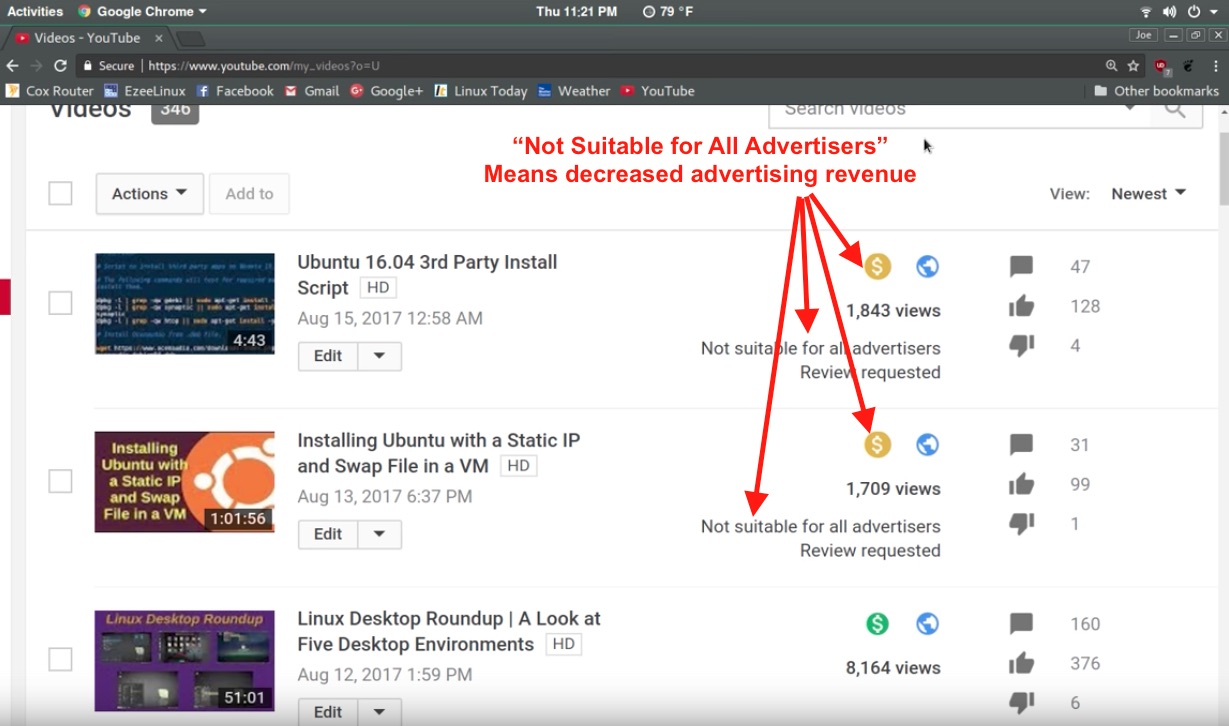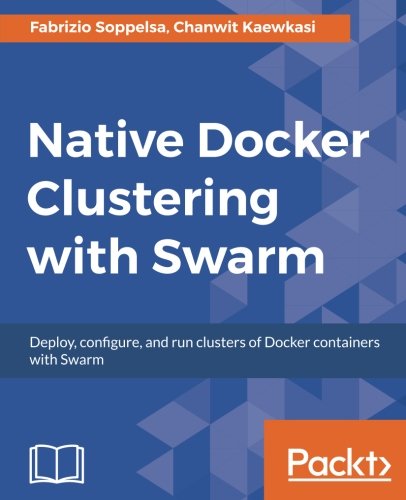; Date: Wed Aug 30 2017
Tags: YouTube »»»» Online Video »»»»
This YouTuber takes us into his videos management console for an inside look into what some call the YouTube Adpocalypse. This guy has been posting videos since 2008, and developed into a focus on Linux. Early on he didn't care about the revenue, but as it grew (both his subscribership and revenue) his attention changed. Recent policy changes at YouTube are causing his video to receive limited advertising, and therefore limited revenue. That in turn is causing this fellow to (understandably) think about slowing down on making videos. Is Google/YouTube -- in seeking to cater to creators with larger audiences -- starting to kill YouTube?


In other words, for videos with a relatively low rate of viewing (less than 1000 per week), Google/YouTube will put the video on limited monetization.
The effect? The videos with a higher rate of viewing receives full monetization, others do not. The result is a higher incentivization for the popular channels, and lower monetization for others.
This fellow in question says his typical video doesn't gather that many views.
That a given video gets 900 views a week is it less valuable than the one with 1000 per week?
Another issue is that most views occur in the first fiew days the video has been posted. By delaying reviewing the video for monetization for those days means the content creator misses out on the majority of their possibile revenue.
What's the solution?
One solution is complaining to Google and demonstrating, like this guy does, the harm being caused.
Another solution is to head to a different platform. Some people focus their content creation on their own website where they control monetization. For those people, YouTube serves as a place to post teasers drawing people to an independent website.
Another solution - Patreon - write books that you promote - etc
Bottom line
I think it's risky to trust your business on the whims of an 8,000 pound gorilla. This Adpocalypse thing is a direct example of the risk.
In a follow-up video the guy says Google "fixed" the problem, enabling full monetization pretty quickly.











